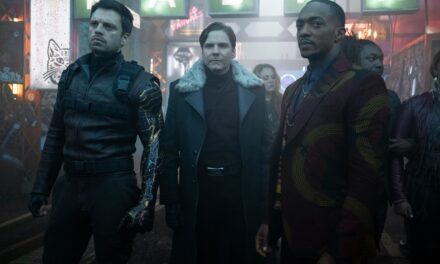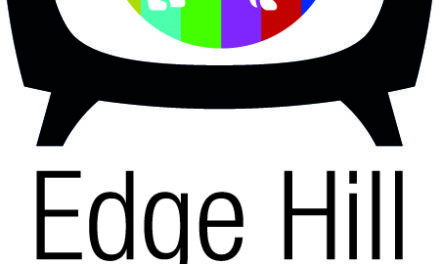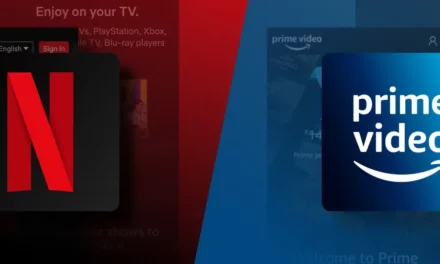
The Royal Television Society may claim to be ‘Britain’s leading forum for television and related media’ but it can still look like a rather old-fashioned institution. The Prince of Wales is its Patron and John Logie Baird was made a Fellow back in 1927. It rather lacks starry glitter and, although it does give out numerous awards at regional and national level, unlike BAFTA, it hasn’t followed the US Academy Awards gone down the celebrity-driven red carpet. But what it does and how it does it is still significant in terms of the broader television culture. Professional practices, understandings and assumptions about television are embedded in institutions but much work on that context has tended to concentrate on the broadcasting institutions (going as far back, in the UK, as Tom Burns’ brilliant account of the BBC in the early 1960s and 1970s). But the RTS, which is largely funded by the television broadcasting institutions, offers a slightly different take on this process.

I first came across the RTS when I arrived at Glasgow University in 2002. My appearance rather fortunately coincided with the start of a new soap opera, River City, made by BBC Scotland for screening only in Scotland.1 The programme went out twice a week and its debut caused something of a stooshie (an uproar, a commotion, a fuss, a row or a brawl) in the Scottish press. I was thus plucked from obscurity and invited to appear on a panel, organized by RTS Scotland and chaired by Channel 4’s Stuart Cosgrove, to discuss the rights and wrongs of soap opera; other panelists included Caroline Paterson, a fine Scottish EastEnders’ actress and a filmmaker in her own right, and Stuart Doughty, a very experienced ITV television producer who had apparently been drafted into rescue River City even before it started. The room was crowded, the debate extremely lively and the whole thing was thoroughly enjoyable. After this, I got involved with the RTS in Scotland and ended up on the Executive Committee and ran the RTS Student Awards competition in Scotland for a number of years.
I start with this because the event demonstrated a number of things about the RTS. The professionals on the panel were all engaged, enthusiastic and came from a variety of professional backgrounds and institutions; they were on home turf and were relaxed and informative. The audience was largely made up of television professionals on the one hand and media studies students on the other. It was clear the media professionals were wary of ‘media studies’ but they were nevertheless interested in my views and in the views of young people in the audience; Stuart Doughty later kindly took time out to come and talk to my Glasgow students about television drama. There was a large lobby from the BBC who were highly vociferous and fiercely critical of River City, despite working for the company that produced it. And, while this panel took place under the auspices of the RTS, it was a Scottish event, organized by the Scottish committee for a Scottish audience.
The RTS organizes much bigger events than this example. Its most well-known event is the biennial Cambridge Convention which is often a test run for how the current Minister for Culture, Media and Sport can handle his/her brief in front of the big beasts of the television establishment. And the RTS is also a venue for big speeches by key players: in March 2012, for instance, Mark Thompson gave a speech to the RTS about the future of the BBC which presaged the announcement of his departure.
But in some ways the smaller events are more interesting. It was at an RTS Scotland event in 2003 that I first heard (pre-Coast) about the possibilities of geography on television when Harry Bell of Tern TV talked about a programme then in production: Map Man with Nicholas Crane. At an RTS London panel, before the programme screened, I heard the makers of Bleak House talking with fascinated wonder about filming television fiction in HD. A recent panel about the priorities for the new BBC Director General attracted a diverse panel of James Purnell (BBC policy writer and former Labour minister), Lorraine Hegessey (former controller, BBC1), Trevor Phillips (Chair, Equality and Human Rights Commission) and John Whittingdale, Conservative MP and Chair of the Media, Culture and Sport Select Committee), who accepted the challenge of making a pitch for the post and engaged with questions of funding, technology and content in very different ways. And the best attended event I have been to was organized recently by RTS London on the topic of the 1948 Olympics. A large audience was thoroughly engaged by a technical talk, with photographs and rare footage, in which Norman Green told us about how television contributed to the breathtakingly modest precursor of London 2012. Many of these discussions and events are recorded in the organisation’s journal, Television which is sent out monthly to members.
Television academics, even those of us who work mainly through textual analysis, have always been interested in the politics of television production in the broadest sense. The RTS then is interesting for what it shows about this. Its old-fashioned air reflects some of the past history of television as well as of the Society. Its regional structure reflects the old ITV regions and each month sees a number of well-organised and lively events all over the UK. Television has less of the London-centric rhetoric that characterizes much media journalism. The RTS, in its events and awards, still retains its feeling for the technical craft of getting television out; it celebrates the history and tradition of that, as well as the digital technologies that are transforming television. But the RTS is also very concerned about the future. In the panels and the reports, you get a feeling of the big well-established names of television (commissioners, controllers, writers) trying to think through what the changes in television technology and delivery might actually imply and what they don’t say and don’t address can be as illuminating as what they do. And it is also interesting to see where divisions between for instance the BBC, ITV, Sky and the indies carry force and the points at which they agree across institutional rivalries about what they see as fundamental issues.
And the people they are speaking for and to are not homogenous. The RTS, although in the 2000s it became an educational charity, is still much like a craft guild which passes on values and traditions through the generations. Participation at the events reflects this. Many retired television professionals clearly enjoy meeting up to engage once again with the medium which absorbed their working lives. The BBC die-hards, just as they did over River City, are eager to make arguments about quality and standards while the technology wizards carry on celebrating what can be done just because it can be done. Highly successful television makers give up time and energy to sit on regional juries which judge the RTS student entries and feed back comments and encouragement. But, if there is a continued interest in passing on knowledge and history, there is also a strong sense that traditional values are changing and an uncertainty about whether the RTS can capture and represent the people who are finding jobs in television now. RTS Futures has been developed to offer professional skills of pitching and networking to new entrants who are facing the challenge of portfolio careers; the ‘three minute speed date’ format for some of these events (‘Speed date the news and current affairs gurus’ or ‘drama gurus’) reflects, I suspect, the anxiety and near-desperation of many participants. And those who have not made it to even this threshold often speak up at events like a recent debate on ‘Is TV too posh?’, asking pertinent questions about the lack of diversity in the current television workforce.
The RTS is currently advertising for a new CEO since the current incumbent, the ebullient Simon Albury, is standing down at the end of the year. Albury began his career on World  in Action in 1969 and was a founder of the Campaign for Quality TV which campaigned over the 1990 Broadcasting Act. With Clive Hollick, Roger Laughton and Michael Palin he made up the team that won the Meridian license in that year. The advertisement for the new Chief Executive emphasises change, growth and the need for a digital presence but it also advises that ‘the successful candidate does not have to come from the television industry’. Perhaps, like much else about the RTS, that tells us something about the television industry today.
in Action in 1969 and was a founder of the Campaign for Quality TV which campaigned over the 1990 Broadcasting Act. With Clive Hollick, Roger Laughton and Michael Palin he made up the team that won the Meridian license in that year. The advertisement for the new Chief Executive emphasises change, growth and the need for a digital presence but it also advises that ‘the successful candidate does not have to come from the television industry’. Perhaps, like much else about the RTS, that tells us something about the television industry today.
More about the RTS can be found at http://www.rts.org.uk/
Christine Geraghty is an Honorary Professorial Fellow at the University of Glasgow and an Honorary Research Fellow at Goldsmiths, University of London. Her publications on television include a contribution to the 1981 BFI monograph on Coronation Street; Women and Soap Opera (Polity, 1991); and My Beautiful Laundrette (I B Taurus, 2004). Her BFI TV Classic on Bleak House (2005) will be published in October 2012. She is on the editorial board of the Journal of British Cinema and Television and sits on the advisory boards of a number of journals, including Screen.
1 See Critical Studies in Television Volume 5 Number 1, Spring 2010 for Lynne Hibberd’s essay on this programme, ‘River City: Invisible Soap’. See also ‘An Interview with John McCormick, Former Controller, BBC Scotland’ Journal of British Cinema and Television , Volume 1 (2) for an account of why, despite all the opposition, the soap was so important.↩





